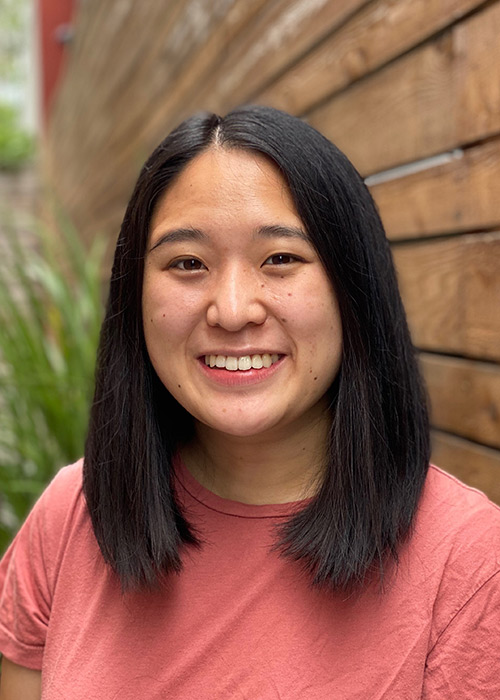
What influenced you to pursue a degree in nutritional sciences?
I chose a degree in nutritional sciences to become a dietitian, and to be able alleviate problems in an individual’s life by applying my strengths in science and my passion for food. During my high school years, I realized my passion for life science through classes like chemistry and biology. A food science class I took for fun helped ignite my passion for food science, when I realized that it was a more tangible application of the life sciences I already enjoyed. These experiences helped me understand the vast complexity of the human body and how food plays a vital role in making it function by contextualizing concepts in science and physiology to something so pervasive and easily overlooked. I had originally planned to pursue a career in science as an undergrad, unaware of the professions that combined my two passions. I took nutrition courses in addition to my degree courses, and I was introduced to the field of nutritional sciences and dietetics. After researching the profession, I found that a career as a dietitian was exactly what I was looking for: a mix of science, food, and a way to positively impact people’s lives every day. I wanted to contribute to nutrition and diet-related research and translate the findings into practice, which was what a degree in nutritional sciences would allow me to do.
Why did you choose UW?
I am originally from Washington State and went to UW for my undergraduate degree. As an undergraduate, I was searching for a career path that would combine my interests in science with food. I researched the UW School of Public Health, I found that there was a combined master’s program and dietetics program. The UW’s program is one of the few programs that offers a Master of Science, and as a student in the GCPD program, I would have the opportunity to train under top scientists and clinicians and complete clinical internships in diabetes, pediatrics, and endocrinology. UW’s GCPD program has many resources and connections which I knew could help me gain experience in translational research and clinical work.
Tell us about your research and internship experience?
My master’s research project was with the Bornfeldt Laboratory and the Kanter Laboratory with the UW Diabetes Institute in South Lake Union and focused on diabetes accelerated chronic kidney disease. Individuals with diabetes are at risk of elevated triglyceride-rich lipoproteins, which are thought to contribute to kidney function decline and diabetic kidney disease through cell dysfunction. For my thesis, we investigated whether triglyceride-rich lipoproteins accumulated in the kidney glomerulus and the effects of hyperglycemic and/or dyslipidemic conditions on kidney endothelial cells.
I am currently nearing the end of my dietetic internship, completing my food service and management rotations with Seattle Children’s Hospital. I was previously at UW Medical Center and Seattle Children’s Hospital for clinical rotations and a Public Health-Seattle & King County WIC clinic. I really enjoyed my time at all of these facilities and learning the different roles a dietitian can play depending on the institution.
How would you describe the benefits of your research or how it may potentially impact public health?
Diabetes impacts many people in the United States and individuals who are diagnosed with diabetes experience diabetes-related complications. My research looked at the pathophysiological process of diabetic kidney disease (DKD) specific to the role of lipids. The findings from my research are a starting point in understanding how dyslipidemia and diabetic conditions affect different cells in the kidney glomerulus and drive DKD progression, which can help with developing treatments and prevention of DKD progression. Using the outcomes of my research to be able to prevent disease progression and/or alleviate chronic disease burden would help benefit the many individuals impacted by DKD.
What are your future goals?
My current future goal is to become a pediatric inpatient dietitian. I learned so much during my time at Seattle Children’s Hospital and I enjoyed working with children and families as well as the dietitians at Children’s.
What extracurricular activities do you enjoy?
I love to bake and perfect my baking technique in my spare time. I like to share my baked goods with people around me to get feedback and improve on my bakes. During the pandemic, like with many other people, I baked a lot of bread and I enjoyed getting to know more about Washington State and the fun food and hidden spots around the state. I also have a COVID puppy named Kopi, and most of my other spare time is spent training and taking him to dog parks. Pre-pandemic, I also enjoyed traveling and eating foods from around the world.
Tell us a fun fact about yourself
I played the violin growing up and played in the UW philharmonic orchestra for a year during my undergrad time for fun!
What do you like most about living in Seattle?
Seattle is very open to diversity and strongly emphasizes public health. I really enjoy how many different cultures are represented here. One such example is how I can have food from a different culture every day of the week and still have something different the next week. During the pandemic, residents of Seattle came together and practiced social distancing, wearing masks, and getting vaccinated all for public health. I was really impressed and grateful to be living here during this crazy time.
What advice would you give someone considering graduate study with the UW Nutritional Sciences program?
Reach out to current students, alumni, staff about the program to learn more! I had the opportunity to talk to students and staff members to really understand the program and determine if a career as a dietitian was right for me.
Interested in studying nutrition as a graduate student? Explore our graduate study and RDN training offerings in the Nutritional Sciences Program.